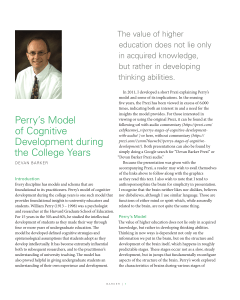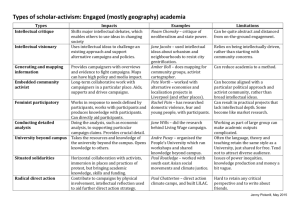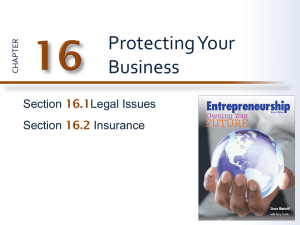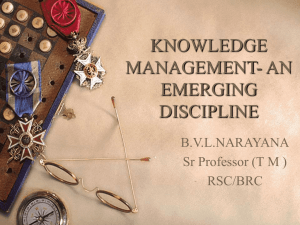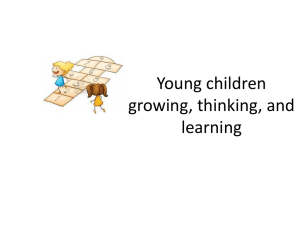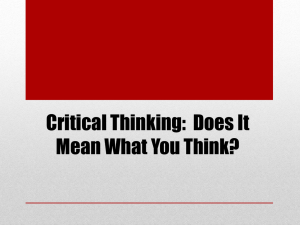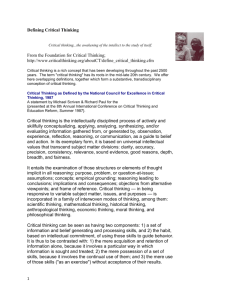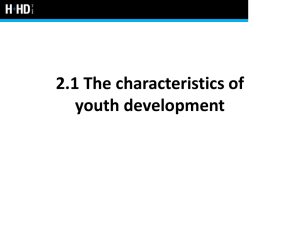Cogntion & Learning: Stages of Intellectual Development
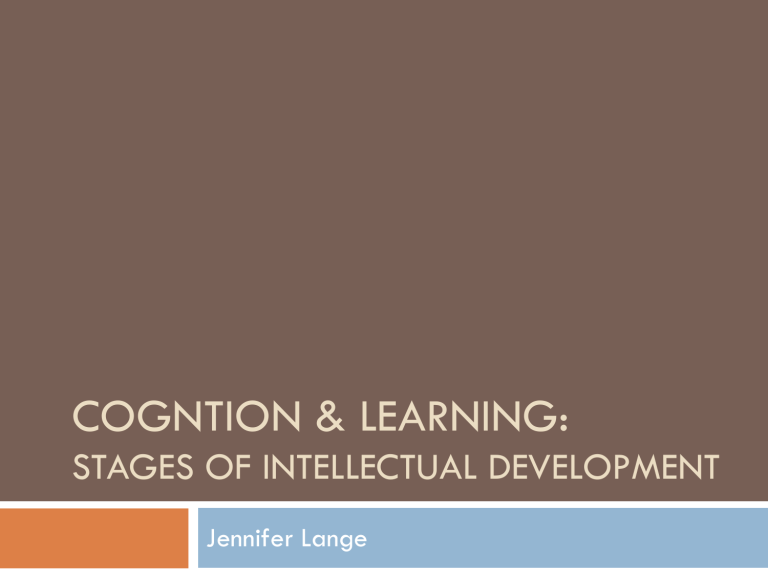
COGNTION & LEARNING:
STAGES OF INTELLECTUAL DEVELOPMENT
Jennifer Lange
Perry Game
Your Task:
1.
Sort the statements into categories based on attitudes about learning.
2.
3.
Assign a label to each category that describes the intellectual stage shown.
Debrief – what are your categories and why did you choose those statements as a group?
Adapted from Reimers & Roberson 2001
Theories of Intellectual Development
Describe how our views change over time from unsophisticated (black & white) positions to ones that embrace complexity
Changes are responses to intellectual, social, or emotional challenges
Students begin to question values and assumptions presented to them by family and society; they start to develop their own
Theories of Intellectual Development
Describes students in aggregate, not individually
Development is not always forward
Can be in different stages at the same time in response to different intellectual challenges
Research
Perry (1970)
464 interviews with 140 male Harvard students in the
50’s & 60’s
Belenky et al. (1986)
135 women (90 students) in US in 70’s & 80’s
Baxer-Magolda (1992)
Followed 101 (half male/half female) Miami University students from 1986-1991
Research
Perry Dualism Multiplicity Relativism Commitment
Belenky et. al
Baxter-
Magolda
Silence Received knowledge Subjective knowledge
Procedural knowledge:
• separated
• connected
Constructed
Absolute knowledge
Transitional knowledge
Independent knowledge
Contextual knowledge
Stages
Dualism/Received/Absolute
Knowledge is viewed as received truth
What matters is if facts are right or wrong
Information is always known and is passed down
Teacher = one that has the answers
Learning = memorizing notes for tests, getting the A is what counts
Student Frustration: Why won’t the teacher directly answer my questions?
Stages
Transitional
Similar to dualism/received/absolute with the exception that they recognize a question may not be able to be answered, and this is ok
Student Frustration: Why won’t the teacher directly answer my questions?
Stages
Multiplicity/Subjective/Independent
Knowledge is a matter of opinion
Teacher = not the authority, just another opinion
Learning = a purely personal exercise
People can disagree and both can be right
Justification isn’t necessary, so shouldn’t judge
Student Frustration: How can the teacher evaluate my work?
Stages
Relativism/Procedural/Contextual
Knowledge is based on evidence
Supporting your argument with reasons is key
Teacher = conversation partner, guide
Learning = what we “know” is dependent on context
Arrive at this through teacher guidance – “give 3 pieces of evidence to back up your statement”
No decision made between options, just multiple supported categories
Student Question: What are more sources of information?
Stages
Commitment/Constructed
Knowledge is based on evidence and leads to decision and action
Facts, feelings, and perspectives all matter – how will I act upon them?
Teacher = one source of many
Learning = making choices, acting on them, taking responsibility
Makes provisional commitment based on current evidence; could change if contradictory evidence arises
Student Question: What were the results of my actions? What does that mean about my future actions & principles I live by?
Intellectual Development by Year
40
30
20
10
0
90
80
70
60
50 absolute transitional independent contextual
Adapted from Baxter-Magolda (1992)
Implications?
If most of our students are in the absolute or transitional stages, what can we do to promote movement to the next stage?
How might this affect how we evaluate their critical thinking skills?
Others?
Modified from DiPitro @ POD 2010




